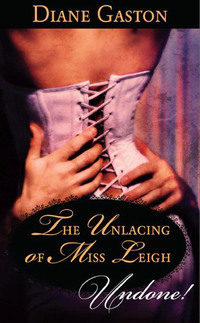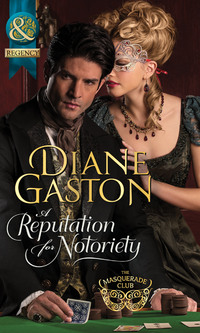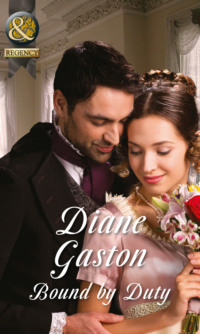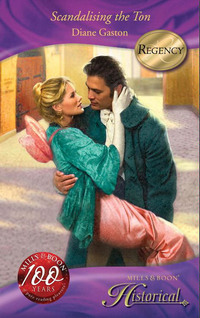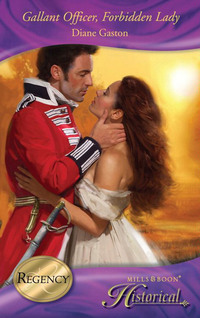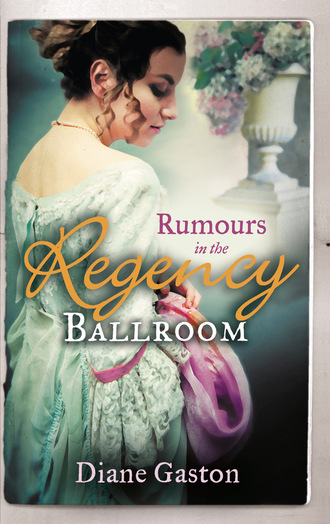
Полная версия
Rumours in the Regency Ballroom
Adrian frowned. He knew nothing of such matters, but he did know that it had been almost five months to the day that he’d lain with Lydia.
Levenhorne pounded his fist on the table. “She’s pulling a fast one on me, I’d wager on it, and she has my hands tied until the ten months is over. Crafty wench. There’s not a blasted thing I can do about it.” He sighed. “Except hope the baby comes late or she pushes out a girl.”
Adrian made himself sit very still lest he launch himself over the table and put a fist into the other man’s face.
This child, girl or boy, to which Levenhorne so scathingly referred, might be Adrian’s, and Lydia did not deserve to be spoken of in such a coarse manner.
Adrian stood. “Forgive me, Levenhorne. I must be on my way.”
Levenhorne glanced up at him again. “I have your word you will tell no one of our conversation?”
“You have my word.”
Adrian walked out, collected his hat and gloves and left White’s. He headed back into Mayfair, again walking by Lydia’s house.
The reporters still clustered. He did not see Samuel Reed, the man who seemed to know more and do more damage than the others.
Adrian continued past the house. He decided he must gain entry in another way besides knocking upon her door in front of the London press. He’d return when daylight was gone, and somehow, some way, he’d speak to Lydia before the dawn of a new day.
Reed stood near Lady Wexin’s side gate. Night was falling and he waited with anticipation for Mary to appear.
Sweet Mary. He liked meeting her this way, in secret, at a time he might pull her into a dark corner and steal a few kisses. He liked it a bit too much, knowing he must eventually cut off the liaison. He just hoped he could do it without her discovering his true purpose for romancing her. Dear sweet Mary. He despised the idea of causing her that kind of hurt.
He heard the familiar creak of the gate and stepped out from the shadows. She ran towards him, propelling herself into his arms.
“Oh, Samuel, I am so glad to see you,” she cried against his chest.
She was hatless and wore only a thin knitted shawl over her dress to ward off the evening’s chill. He wrapped his arms around her tighter.
“I am glad to see you, too,” he responded truthfully. She smelled so clean. Of lavender and soap.
She clung to him. “I have had the most wretched day!”
He kissed her on top of her head, his heart beating faster. “Tell me what has happened.”
“Well, the reporters are back.” She moved out of his embrace and rearranged her shawl. “One of them wrote something in the newspaper, and now they are all back.”
“What did he write?” As if Samuel did not know.
Her hand fluttered to her forehead. “I do not know, really, but it upset m’lady.”
He reached for her again. “Is that all it is? Newspaper reporters?”
She didn’t fall back into his arms as he’d hoped. “And then his lordship came.”
“His lordship?” Samuel felt a rush of excitement.
“Lord Levenhorne. He inherits Lord Wexin’s estate.” She paused. “Unless…”
“Unless what?”
She shook her head and her curls bounced around her face. “Oh, I do not understand all this. I just know m’lady is made unhappy by it.”
He took her in his arms once again. “Do not fret, love. Is it about money? Wealthy people seem always to distress themselves about money.”
She snuggled against him. “I suspect so. It is about the inheritance at any rate.”
She felt so good next to him that he could hardly think and hardly wanted to. Mary had never actually told him Lady Wexin was going to have a child, but she’d skirted around the topic enough for him to guess.
Mary lifted her face and looked at him with her huge, trusting eyes. Samuel felt a twinge of conscience for pressing her. Enough for one night. He could concentrate on Lord Levenhorne next and just enjoy being with Mary for a while.
He dipped his head and touched his lips to hers, so soft and sweet.
Yes, he would enjoy these stolen kisses with Mary. He would enjoy them very much.
Chapter Eight
Does she hide out of shame? What would it be like, we wonder, Dear Readers, to carry the child of a murderer in one’s womb? —The New Observer, April 11, 1819
Adrian watched the maid locked in the embrace of her lover. The two stumbled into the garden, still in each other’s arms.
They had left the gate slightly open. Adrian stole over and peeked in. The lovers were headed for a far corner, away from the house.
Adrian had planned to knock at the front door, to be announced to Lydia properly even if the hour was unforgivably late, but one of the newspapers had left a young fellow watching the house, so Adrian had walked on by. He turned the corner just when the maid and her lover had wrapped their arms around each other.
It was all too easy. Adrian slipped through the gap in the gate and crept through the shadows to the back door. When he reached the door, it was unlatched.
He walked in, still intending to announce himself.
Sounds came from the kitchen, but when he peeked in, he could see no one. He continued to the stairs, climbing them as quietly as he could and opening the door a crack to see if anyone was in the hall.
Empty.
He ought to call out. Announce his presence.
Instead he climbed the marble stairs and saw a glow of light coming from the drawing room. Taking in a breath and holding it, he opened the door.
Lydia rose from a chair near the window, book in hand. An oil lamp on the table next to her gave more illumination than the waning daylight through the glass. The lamp lit her face with a soft glow, making her hair appear tinged with gold where the light touched it.
He had forgotten how lovely she was.
She gasped and dropped her book.
He stepped into the light. “Forgive me, Lydia, I know I intrude.”
“Adrian!” Her voice was breathless. She took a step forwards as if glad to see him, but she quickly shrank back. “Why didn’t Dixon announce you?”
“He does not know I am here.” He gave a rueful smile. “I fear no one knows I am here. I truly did intrude, Lydia. I entered without anyone seeing me.”
“Without anyone seeing you?” She picked up her book, closing it and placing it on the table.
“I entered through the back door.” He did not wish to get the maid into trouble. “One of your servants stepped out for a moment, and I came in unseen.” Saying it made him realise how outrageously he’d acted.
She looked rightfully indignant. “You sneaked into my house?”
“I know it sounds bad,” he said with chagrin. “But there was a fellow watching the front door. From a newspaper, I expect.” He paused, feeling as if he was not making sense. “Otherwise I would have knocked for admittance.”
She held up a hand, stopping his explanation. “Never mind. Tell me why you are here when I asked you not to call upon me again.”
“The newspaper this morning—” he began.
She swung away. “That—that—horrid paper.”
In the low light and with her loose dress, he could not perceive any telltale changes signalling her condition. If anything, her figure appeared even more voluptuous than he remembered, as if she’d had enough food to eat.
“Is it true?” he asked.
She turned her head to him. “Is what true?”
He could think of no delicate way to say it. “Are you increasing?”
She blinked rapidly. “That is a very private matter, not one to discuss with a gentleman I hardly know.”
He walked closer to her. “But it is how you know me that makes it my business. At least to ask.”
Her breathing accelerated.
“Lydia?”
“You need not concern yourself, Adrian. I am well able to handle whatever my situation might be.” She lifted her chin. “I am not as forlorn as when you first encountered me.”
And he had been the one to take away her pitiable state, even if she would never know it. “I am glad of it.”
She met his gaze steadily. “So there is no reason for you to come here.”
She looked elegant and regal, even though her dress was a simple one more suited to morning. Her hair was piled in a loose knot on top of her head, tendrils escaping to caress her forehead and cheeks. He remembered how soft her curls had felt, slipping loose and luxuriously through his fingers. Even now he itched to pull the pins from her hair so that it would fall about her shoulders and he could grab a fistful in his hand.
He forced himself to his task. “Lydia, cut line. Are you going to have a child or not?”
He walked close enough to touch her. If he could place his hand on her belly he might feel for himself if a child grew within her. That would, he supposed, be even more of an intrusion than entering her house.
She raised her eyes to his, and he felt a jolt of attraction, the same attraction he’d been unable to resist when she’d asked him to make love to her. He waited for her to speak, his heart beating so hard, he thought she must be able to hear it.
She said nothing.
He tried again. “If the child is mine, Lydia, I will do my duty.”
“Your duty?” Her voice rose. “What do you mean by your duty?”
His emotions were in a muddle about this, but he was enough of his father’s son to know what was expected of a gentleman. “Marriage, if you should wish it.”
“Marriage!” She spat out the word and quickly turned her face from him, silent for so long he had an impulse to prowl the room like a caged cat. Finally she cast her gaze upon him again. “Do you expect me to believe you would marry me?”
Why not? he wondered. “I am an honourable man, Lydia.”
She gave a scoffing laugh. “You are a libertine, Adrian. Libertines do not marry.”
Her words stung. “A libertine? And how is it you are so certain I am a libertine?”
“It is what people say of you. They call you a rake, at least, which is the same thing, is it not?”
He was not about to debate the differences between a rake and a libertine. His eyes narrowed. “You of all people should know not to give credit to gossip.”
She glanced away, two spots of colour rising to her cheeks. “It is, nonetheless, all I know of you. I have no experience to tell me otherwise.”
He waved his hand as if erasing that piece of conversation. “It matters not what you believe of me. If the child is mine, I will take responsibility, and that means marrying you, if that is what you desire.”
Lydia glanced away, her muscles taut with anxiety. The ton’s most devil-may-care bachelor said he would marry her out of duty. She almost wished to laugh. The last thing in the world she desired was another marriage. She’d married once with stars in her eyes and look what a horror that husband had turned out to be.
But Adrian was not Wexin.
She darted a glance to him, so handsome, standing so tall and still. Masculine energy emanated from him, and, God help her, attracted her.
She’d be a fool to give in to the desire that pulsated inside her, a fool to entrust her life—and her child’s—to any man.
She took in a fortifying breath. “There is no need for you to do anything, Adrian. There is no responsibility that I would hold you to.”
He stepped away and bowed his head, seemingly lost in thought.
It would be so easy to simply lie and tell him the child was Wexin’s, but she could not make herself say the words.
Think of what the newspapers would write about her if she married him and acknowledged the child as his. The world would know that she’d bedded a man before her husband was cold in his grave.
Her indiscretion had been the cause of this pregnancy. That made it her problem to handle, not Adrian’s. If her child was born within the ten months stipulated by law, the child, son or daughter, would be considered Wexin’s, but she would be in charge of her finances and her life.
She made herself look directly at Adrian again, even though looking at him made her heart leap and flutter and her body yearn for him. She could not forget how his hands had felt upon her, the softness of his lips, the firmness of his muscles. Her carnal urges flared into life and it was all she could do to keep from propositioning him again.
Dear God, she could not possibly want to couple with him again, not when she was hiding that this child was his.
“You need not have an attack of conscience or duty or whatever it is that men have,” she said to him in an angry voice, although the anger was at herself for her weakness, not at him. “It is quite all right with me if you forget this matter.”
He met her gaze and she thought she saw a wounded look in his eyes. “I have done nothing to deserve your bitter tone.”
Her cheeks flamed at the truth of his statement, but she recovered quickly. “Nothing?” She hit him with the one dishonourable thing he had done. “I asked you not to call upon me again, and you break into my home like a thief.”
“I did it to find out about the child,” he shot back, taking a step towards her, coming so close she caught the clean scent of lime soap on his skin.
She held her ground with difficulty. “Is it so hard to believe that this baby is my husband’s?”
His voice turned so low it vibrated inside her. “It is when I know there is a chance it is mine.”
“Believe me, Adrian,” she whispered, “it is not so easy for me to conceive a child that I would conceive after one time.” At least it had not been that easy with Wexin. She softened her tone. “Take your leave. You have done enough by coming here. There is nothing I need from you.”
To her surprise, he reached out to her and gently touched her arm. “Forgive me for not knowing. I have been abroad. They say you have been a recluse. Are you not going out at all? Is there no one who has renewed acquaintance with you?”
She was startled by his concern. Besides Lord Levenhorne calling today, and the occasional bank representative, no one but Adrian had called upon her. “No member of the ton wishes to see their name in the newspapers, I suspect.”
He frowned. “You must not allow the newspapers to make you a prisoner in your house. Go where you please and ignore them.”
He could say that with ease. He was not the one followed about, or stopped on the street and asked rude questions.
She glanced at his hand, still upon her arm, then back at him. “I am not certain I should heed advice from an intruder.”
He did not take the hint and release her. “Then accept the advice as from a friend,” he said. “Our connection may be brief and…unusual, but enough for me to be concerned for your welfare. I am here, if you need me. I will come, if you need me to.”
She held her breath.
His words felt like a proposition, an invitation to seduction. His touch melted her like a flame melts wax. She felt she would only have to put her arms around his neck and her lips against his and in a moment they would be making love on the settee. God help her, she did need him. She needed to feel him hold her with strong arms, needed to run her hands up his firm chest, to dig her fingers into his hair. She needed to feel him fill her again, as a man fills a woman. She trembled with need.
But she backed away. “I need nothing from you.”
He stared at her, a hint of pain in his angry eyes. Her guilt escalated. Obviously he had not shared her carnal thoughts.
He swung away and started walking towards the door. It felt the same as when he had left her before, loneliness engulfing her.
He reached the door and turned back to her. “I will trouble you no further.”
As he disappeared into the dark hallway, she collapsed in her chair and placed her hand over where his baby grew.
Adrian went straight to Madame Bisou’s, a gaming hell he knew on Bennet Street. He and Tanner had often spent a night at the tables there, and Adrian had been known to flirt with the pretty girls Madame Bisou employed.
When he walked into the gaming room looking more for a drink than a seat at a table, a voice greeted him. “Pomroy!”
A flaming red-haired young woman wearing a dress of ice blue ran over to him and grabbed his arm.
“Katy Green.” He kissed her on the cheek. “But it is not Pomroy. It is Cavanley.”
She laughed. “I forgot. Sir Reginald told me about you being called lord now.”
She released him and examined him with her elbows akimbo and a line creasing her forehead. “I declare, you look healthy enough. I thought you must be very ill. You have not been here in an age.”
He had not been to Madame Bisou’s since the previous spring, and it seemed a lot had happened since then. “I’ve been in France.” France was as good an explanation as any.
She grinned at him and winked. “Wait until Madame Bisou hears. You will make her homesick.”
The closest the madame, born Penny Jones, had come to France had been drinking a bottle of champagne and he and Katy both knew it.
Katy took his arm again and escorted him through the room where the tables were covered with green baize. Three of the walls were lined with faro and hazard tables. Against the fourth wall one of the girls served drinks.
“What are you looking to play tonight?” Katy asked him. “Faro? Hazard?”
He rolled his eyes. “Fool’s games.” Luck, not skill, made winners in hazard and faro, and luck always favoured the house. “What I really want is a brandy.”
“Brandy!” she cried. “Come with me.”
He was soon sipping the burning liquid, but it failed to ease the hard rock of emotion inside him.
He’d done his duty by offering to marry Lydia. He ought to be glad he’d escaped marriage. The parson’s mousetrap, he and Tanner used to call it, but it nagged at him that she did not think him worthy of marrying. A libertine, she had called him. And she wanted nothing to do with him.
It also nagged at him that she’d not actually denied that the child was his. He only knew she did not wish him to be her husband. Why had she not accepted his proposal? He was wealthy. He came from a good family.
Adrian finished the brandy, took another, and answered his own question. She had no wish to be married to a libertine.
He could not blame her for that opinion of him. He’d cultivated the reputation of a rake, even if it had never been entirely accurate. He did not trifle with women’s hearts. His liaisons with women involved mutual desire, and their partings were mostly amicable.
He finished the second brandy in one gulp and asked for another.
Katy’s eyes grew wide. “Oh, ho, you are thirsty tonight.”
He extended his glass again for the girl to refill. “Very thirsty. Thirsty enough to get thoroughly drunk.”
“Oooh. That must mean a problem with the ladies.”
He downed the third glass and thrust his hand out once more. “Have you not heard, Katy Green? Libertines do not have problems with ladies.”
At a proper morning hour, Samuel Reed waited in a small parlour off the hall of Lord Levenhorne’s townhouse, a place where, undoubtedly, tradesmen and other men who toiled for a living waited for his lordship. Samuel did not resent it. He was only grateful that he had not been summarily ejected.
After at least a quarter of an hour, a footman entered. “Lord Levenhorne will see you now.”
Samuel was led to the library, where Lord Levenhorne sat behind an elegant desk with thin carved legs and made of some dark wood—mahogany or oak, perhaps.
“Mr Reed, m’lord,” the footman said before bowing and leaving the room.
When Levenhorne looked up, Samuel bowed as well. “Thank you for seeing me, my lord.”
“What business do you have with me, Reed? Your card tells me you are from that New Observer paper.” Lord Levenhorne sounded none too pleased.
But he had agreed to see Samuel, so that gave him courage. “If you read my paper, sir, you will know that I am following the story of Lady Wexin—”
Levenhorne coughed. “I’ve seen what you wrote.”
Samuel nodded. “I wonder, my lord, what you can tell me about the lady. My sources inform me that she is to bear a child—”
“That, unfortunately, appears to be true—” Levenhorne seemed to catch himself. He stopped talking and peered more closely at Samuel. “These are family matters, Reed. Not the stuff for newspapers.”
Samuel took the liberty of advancing one step closer. “Ah, but I have a reporter’s sense, and I believe there is a story in Lady Wexin.” He gave Levenhorne an intent look. “If she produces a son, he will inherit Wexin’s property and title, is that not correct?”
“Such as it is,” the man murmured just loud enough for Samuel to hear him.
“And you will inherit if she produces a daughter, or if the child is not born in time.”
“That is so,” Levenhorne said in a careful voice.
“If this child is not Wexin’s, however…”
Levenhorne leaned forwards. “What do you know?”
The man was interested. Samuel had him. Levenhorne would tell him what he wanted to know. He spoke carefully. “I am speculating that Lady Wexin’s child is not Wexin’s.”
Levenhorne rubbed his chin. “She certainly did not appear to be a woman in her sixth month.”
Samuel almost smiled. He had his verification. Lady Wexin was breeding and the baby was not her husband’s.
Levenhorne waved his hand. “It is of no consequence. All she must do is give birth in time and it bloody well doesn’t matter who the father is.”
Samuel gave Levenhorne an earnest look. “But what if my newspaper can bring pressure on the lady to openly identify the father? Would not there be a chance she’d marry the fellow? If they both acknowledge the baby as that other man’s, then the inheritance goes to you.”
“Indeed,” said Levenhorne in a contemplative voice.
“I will write the story. We have four months to put pressure on her.” Four months of building sales of the newspaper. Everyone would want to see what next would happen with the scandalous Lady Wexin. “All I ask is that you support the idea that another man is the father.”
“I do support it,” said his lordship.
“I am in your debt, then, my lord.” Samuel bowed again. “If you hear anything about who the man may be, please send word to me.”
Levenhorne stood and extended his hand. “I will do so, indeed, sir.”
Chapter Nine
The question remains—who is the father of Lady W—’s child? The time advances quickly that will tell for certain if the baby is the late Lord W—’s heir or another man’s child.—The New Observer, July 21, 1819
On this warm July day, almost three and a half months after Samuel had first broken the news of Lady W’s interesting condition, a gentleman walked into The New Observer office where Samuel and his brother Phillip sat at their desks. The man’s white pantaloons were so tight his legs seemed made of wood. His blue coat fitted so well his forearms barely budged from his sides. With some difficulty he reached up to remove his high-crowned beaver hat. With this in one hand, he struggled to pull a white handkerchief from his pocket to mop his brow.
Samuel cast a glance at his brother, and Phillip clamped his mouth shut, a cough covering laughter.
“I wonder if I might speak to Mr Reed,” the fashionable creature said in a voice as soft as the fabric of his pristine neckcloth.
“Which one?” Phillip asked him.
“Is there more than one? Oh, dear.” His eyelids fluttered. “I desire to speak to the Mr Reed who writes about Lady Wexin—I beg your pardon—I mean Lady W.”
“You want Samuel Reed,” Phillip said.
“Do I?” He made a slight bow. “Then perhaps you might tell me how I might get hold of him.”
Samuel stood. “I am Samuel Reed, sir, and you are?”
The man tittered. “I must beg pardon once more. I ought to have presented myself. I am Lord Chasey, at your service.” He bowed again.




